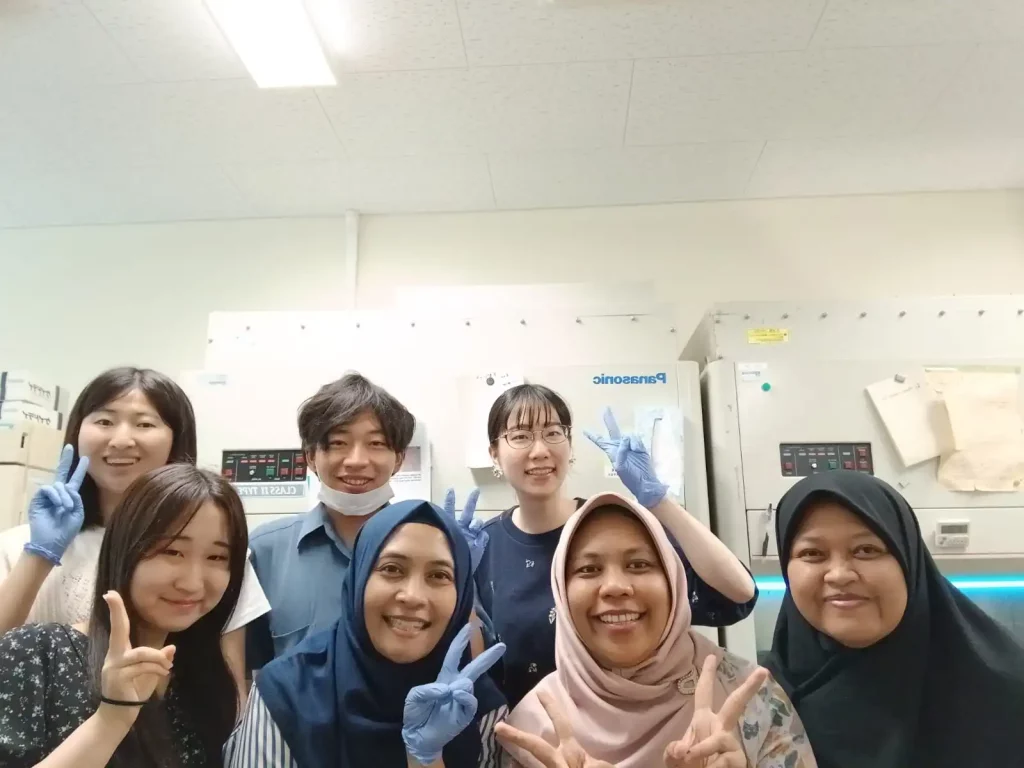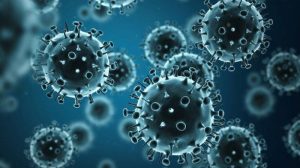UNAIR NEWS – Dr. Siti Qamariah Khairunisa, a researcher at the Institute of Tropical Disease (ITD) Universitas Airlangga (UNAIR), recently participated in a training program at Kobe University in Japan. The training, held from Tuesday, July 23, 2024, to Friday, July 26, 2024, focused on developing monoclonal antibodies for detecting and treating various infectious diseases, including HIV.
In an interview, Dr. Khairunisa highlighted that ITD comprises several study groups dedicated to infectious diseases such as HIV, Viral Diarrhea, Hepatitis, Dengue, and Tuberculosis. She is an active member of the HIV study group, engaging in numerous molecular epidemiology research projects involving HIV patients.
“One of our primary projects in the HIV study group is conducting molecular epidemiology surveys across different regions of Indonesia to understand the spread of HIV strains. We also investigate the resistance and effectiveness of medications or therapies provided by the government to improve the quality of life for HIV patients,” Dr. Khairunisa explained.
Training activities
The training at Kobe University is part of the PUIPT Research Center on Global Emerging and Infectious Diseases (RC-GERID) project at ITD-UNAIR, which is currently working on developing monoclonal antibodies. “We are collaborating with Kobe University to develop monoclonal antibodies, particularly for the HIV virus. This project has received grant funding that enables us to conduct intensive training,” Dr. Khairunisa stated.

During the training at Kobe University, Dr. Khairunisa and her colleague, Dwi Wahyu Intriati, a lecturer of the Faculty of Vocational Studies, learned various techniques for characterizing monoclonal antibodies, including western blot, immunofluorescence, immunostaining, and neutralization assays. “This training aims to enhance the capabilities of researchers at ITD. We learned a great deal about these techniques, which we can later apply to develop rapid detection tools for the HIV virus and to create new medications,” added Dr. Khairunisa.
During the training at Kobe University, Dr. Khairunisa and her colleague, Dwi Wahyu Intriati, a lecturer of the Faculty of Vocational Studies, learned various techniques for characterizing monoclonal antibodies, including western blot, immunofluorescence, immunostaining, and neutralization assays. “This training aims to enhance the capabilities of researchers at ITD. We learned a great deal about these techniques, which we can later apply to develop rapid detection tools for the HIV virus and to create new medications,” added Dr. Khairunisa.
This training is also critical for the development of the Rota virus vaccine, currently being developed by PUI-PT RC-GERID, ITD-UNAIR. This vaccine is not yet available in Indonesia. “We hope to apply the knowledge we gained at Kobe University to develop the Rota virus vaccine. By doing so, we can significantly contribute to managing and preventing infectious diseases in Indonesia,” Dr. Khairunisa continued.
Author: Venni Tanujaya
Editor: Yulia Rohmawati









